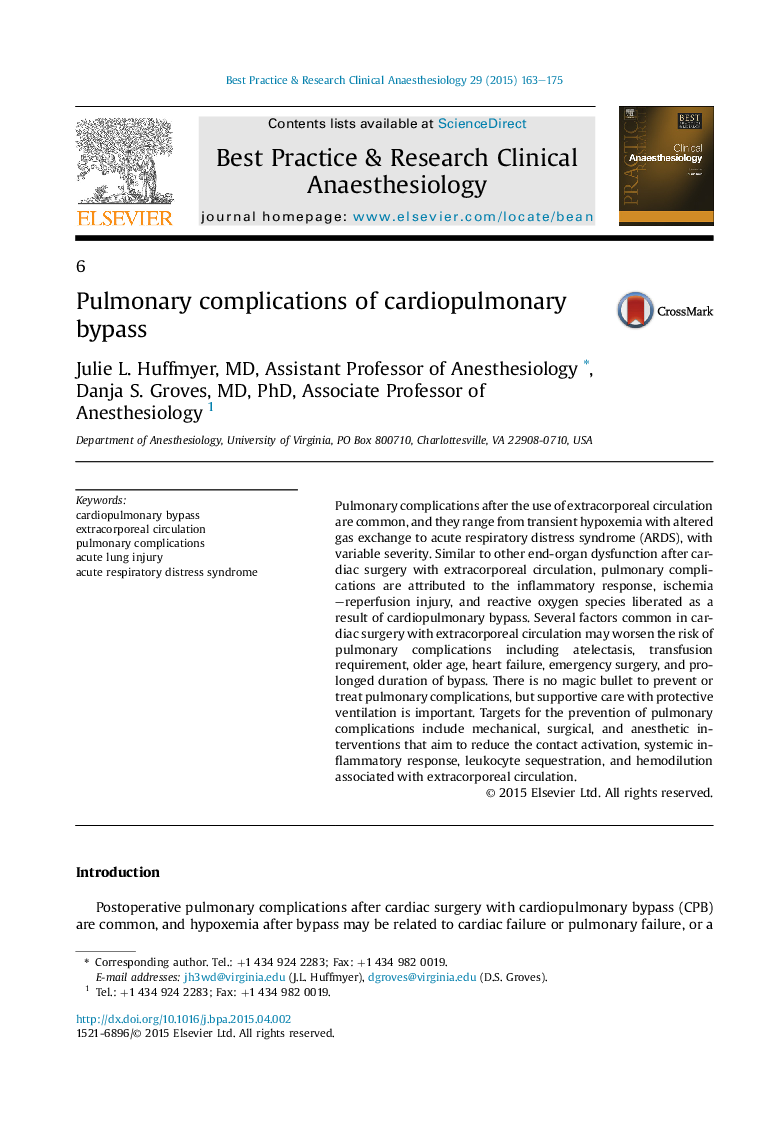| Article ID | Journal | Published Year | Pages | File Type |
|---|---|---|---|---|
| 2748372 | Best Practice & Research Clinical Anaesthesiology | 2015 | 13 Pages |
Pulmonary complications after the use of extracorporeal circulation are common, and they range from transient hypoxemia with altered gas exchange to acute respiratory distress syndrome (ARDS), with variable severity. Similar to other end-organ dysfunction after cardiac surgery with extracorporeal circulation, pulmonary complications are attributed to the inflammatory response, ischemia–reperfusion injury, and reactive oxygen species liberated as a result of cardiopulmonary bypass. Several factors common in cardiac surgery with extracorporeal circulation may worsen the risk of pulmonary complications including atelectasis, transfusion requirement, older age, heart failure, emergency surgery, and prolonged duration of bypass. There is no magic bullet to prevent or treat pulmonary complications, but supportive care with protective ventilation is important. Targets for the prevention of pulmonary complications include mechanical, surgical, and anesthetic interventions that aim to reduce the contact activation, systemic inflammatory response, leukocyte sequestration, and hemodilution associated with extracorporeal circulation.
